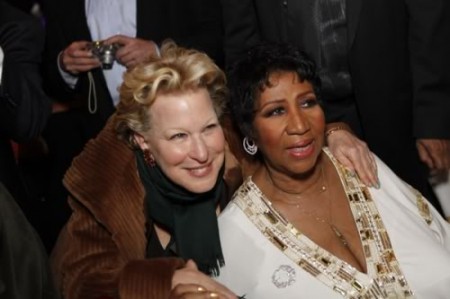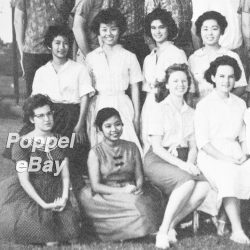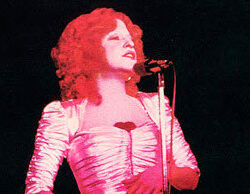CNN Entertainment
Movie, TV extra work: The fallback career?
By Stephanie Goldberg, CNN
updated 9:52 AM EST, Fri December 9, 2011
Atlanta, Georgia (CNN) — It’s 6:30 a.m., and Paul Barlow is chatting with his friends over a breakfast buffet of eggs, bacon and fresh fruit.
Dressed in a dark gray blazer, Barlow waits to take his seat in the Cobb Energy Performing Arts Center‘s auditorium for a special concert by the Dekalb Symphony Orchestra. But the musicians aren’t playing for Barlow and his friends. They’re playing for Billy Crystal, Bette Midler and the rest of the “Parental Guidance” cast.
Once the violins sound and the cameras start rolling, Barlow will merely fade into the background, along with the other 300 movie extras on set.
The 55-year-old first started working as an extra in November 2010 to provide for his family amid the downturn of his ad sales career. Since losing his job in April, he’s become a staple on movie and TV sets around Georgia — and he’s not the only one.
Paul Barlow shows off one of his signature expressions while waiting to play a concertgoer in “Parental Guidance.”
Many of the “concertgoers” present at the shoot for “Parental Guidance,” due out in November 2012, were between jobs, or looking for a fun way to make extra (pun intended) cash.
The recession definitely pushed some people into extra work, said Linda Burns, a commercial and independent film producer who leads a workshop called “How To Be an Extra and On Set Protocol.” Burns said half the class is usually made up of recent graduates with a passion for acting, while the other 50% are “people who lost their jobs and love movies and TV.”
“If you’re not working at all,” she said, “and if you don’t qualify for unemployment … you’re going to make more money on set than you are in your house filling out job applications. There’s so much downtime on set. It allows you time to read or look for those jobs online with your smartphone.”
And while extra work makes a great supplemental income, Burns said treating it like a full time job — as Barlow has for the past year — might be financially challenging.
Movie extras in Georgia typically make between $58 and $101.50 for an 8- to 12-hour day. Compare that to the $140 an extra makes in Los Angeles or New York for the same 8 hours. Screen Actors Guild rates are higher than the non-union wages extras are entitled to in Georgia, casting director Bill Marinella said.
“If you’re hiring somebody at minimum wage … they might not show,” he added. Extras are asked to drive to set, bring different outfits, and then pay to have those outfits dry-cleaned — it would end up costing them money to be there, he said.
But beyond the commitment, Marinella said there’s “little skill involved in being a movie extra. … It’s all based on a look, and then whatever skills you may have.”
And Barlow certainly has a look.
Like the extra says, “My eyebrows are what’s making me the money.”
“He’s just a character,” Marinella said. “You can’t help but look at him. He has an interesting face.”
Marinella originally planned to use Barlow as a stand-in for Eugene Levy on “American Reunion,” but despite the men’s equally bushy brows, they weren’t close enough in height. Instead, Barlow plays a caterer in the film, which will hit theaters in April 2012.
In addition to height, skin tone, hair color and, in some cases, eyebrows, movie extras need an appropriate wardrobe.
The orchestra scene for the Crystal- and Midler-starrer called for conservative, upscale dress — hence Barlow’s gray blazer and button-down shirt.
“I probably have about seven suits from being a salesman,” Barlow said. “That’s the number one thing you need as a guy my age. A guy in his 50s is always playing a businessman.”
But a fancy suit isn’t always a good thing.
“Extras run the risk of being seen in front of the camera when their wardrobe is so damn glamorous,” Marinella said. And though it seems like a close-up would be welcomed by movie extras, to be invited back to set, which means another paycheck, extras need to remain hidden in the background.
“You can’t make a movie with the same extras,” Marinella explained. Viewers would notice if the person playing a bartender showed up in the next scene as a lawyer.
That’s why Burns teaches her extras to lay low on set. Don’t be so dramatic that you become a distraction, she warns. The other rule? Avoid wearing clothes that don’t translate well on film. That means any small pattern, and colors like red, black and white.
Since Barlow has been on the extra scene, he’s appeared in more than 20 productions. Some of which are “The Three Stooges,” “American Reunion,” “The Odd Life of Timothy Green” and Lifetime’s “Drop Dead Diva.”
And he had a speaking role in August’s “The Change-Up” — he played an “amalgamated attorney.” A speaking role is the extra Holy Grail. It means a significant pay increase, too.
Despite such opportunities, Barlow says it’s not a glamorous job. He once heard a crew member say, ‘Here comes the furniture,’ when the extras walked on set.
“I need the money so bad, I can’t miss a day on set,” Barlow said, calling extra work the lowest paying job he’ll ever love.
But the work doesn’t dictate every extra’s livelihood.
Barbara Derketsch gets her makeup done to play an usher in “Parental Guidance,” due out in November 2012.
Barbara Derketsch, an usher at the Cobb Energy Performing Arts Center, is someone Marinella refers to as a specialty extra. No stranger to the role, Derketsch was asked to play an usher in “Parental Guidance.”
“We used the real ushers … because they know how to walk. We don’t have to teach them how to walk. … They gesture with their hands a certain way,” Marinella said.
And the same goes for basketball players, nurses, ballerinas, waiters and so on.
“[Waiters] are used to standing on their feet. … They carry a tray a certain way. … To me, that’s a skill,” Marinella said. “I’ll give you an extra $20, $50 because you’re a real waiter. … The director won’t have to say ‘cut’ to some knucklehead who doesn’t even know how to carry a tray.”
Derketsch, who filmed a scene with Crystal that could make it to the big screen, said the ushers were given film-friendly uniforms to wear for the shoot.
Usually dressed in white shirts, red vests and black bow ties — the three most distracting colors to shoot — the ushers in the film were provided with blue shirts and black vests and ties for the scene.
Another first-time extra, Cameron Gaines, took time off from teaching preschool to appear as a concertgoer in the film.
Gaines, who acted in high school and college, said she was curious to see how movies are made, and what being an extra was all about.
But at the end of the shoot, when Gaines heads back to the classroom, extras like Barlow, who are hoping to make it in the biz, will move on to the next set.
There are so many possible ways to earn money in the film industry, Burns says,
“[Extra work] is the easiest way to get in the door when you don’t have experience,” she added. “It has helped [people] move into better paying positions and find a whole new career.”
“There’s no doubt I love being in front of the camera,” Barlow said. “But I’m starting to discover … that I could probably write a script. … Down the line I could see it.”
For now, he says, his goal is to make a decent living and support his family doing this.







